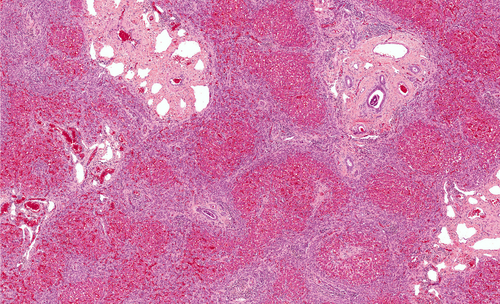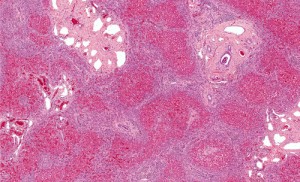Nintedanib Shows Impact on IPF in Boehringer Ingelheim’s Phase III Trial Results
Written by |

 This month, Boehringer Ingelheim presented data concerning the use of nintedanib in patients with idiopathic pulmonary fibrosis (IPF) at the European Respiratory Society International Congress. Data covered two identical phase 3 trials: INPULSIS-1 and INPULSIS-2.
This month, Boehringer Ingelheim presented data concerning the use of nintedanib in patients with idiopathic pulmonary fibrosis (IPF) at the European Respiratory Society International Congress. Data covered two identical phase 3 trials: INPULSIS-1 and INPULSIS-2.
“These results provide important insight on the effect of nintedanib across the patients studied in the Phase III clinical trials, regardless of baseline lung function,” stated Professor Ulrich Costabel, from Ruhrlandklinik University Hospital in Germany, in a news release following the convention.
Annual rate of decline in forced vital capacity (FVC) was the main measure used to determine efficacy of nintedanib treatment. Within the two groups of the 1,061 total patients studied in the trials, a significant difference in volume reduction was seen between treatment and placebo. In one group, nintedanib patients saw a reduction of 111.3 mL and placebo patients saw a reduction of 220.3 mL, while in the other group, nintedanib patients saw a reduction of 119.7 mL and placebo patients saw a reduction of 233.2 mL.
Following these positive findings, Tunde Otulana, MD, senior vice president of Clinical Development & Medical Affairs at Boehringer Ingelheim stated, “We are continuing to work closely with the FDA to make nintedanib available to people with IPF.”
[adrotate group=”3″]
Among the requirements from the FDA are data analyses that probe further into results. Three multiple imputation sensitivity analyses were conducted to make up for premature withdrawal of some patients before the 52-week treatment period ended. These analyses are expected to bolster primary and secondary end point results of INPULSIS-1 and INPULSIS-2. “The new sensitivity analyses of the INPULSIS trials provide additional data around the potential efficacy of nintedanib,” said Dr. Otulana.
Also of importance were the additional data concerning safety of nintedanib. Adverse events were similar among patients, with 95.5% of nintedanib-treated and 89.6% of placebo-treated patients experiencing an event. Severe events accounted for 27.3% of ninetedanib-treated and 23.4% of placebo-treated adverse events, and discontinuation rates were 19.3% and 13.0%, respectively.
Overall, INPULSIS-1 and INPULSIS-2 suggest that 150 mg of nintedanib twice daily for one year leads to a lower annual reduction of FVC for patients with IPF. As a small molecule tyrosine kinase inhibitor, it targets growth factors that are implicated in IPF.
The positive results were accompanied by other presentations at the conference, as previewed previously on Pulmonary Fibrosis News.






